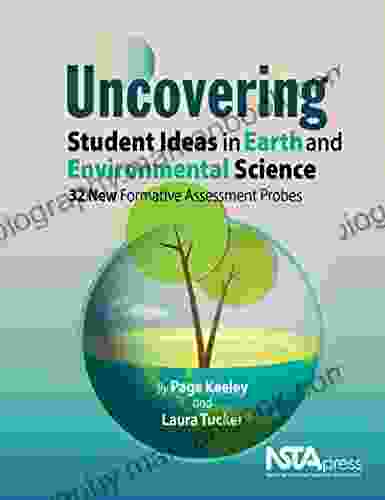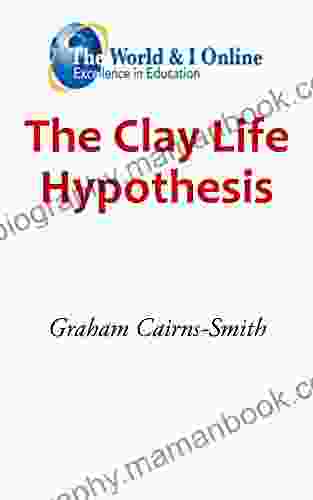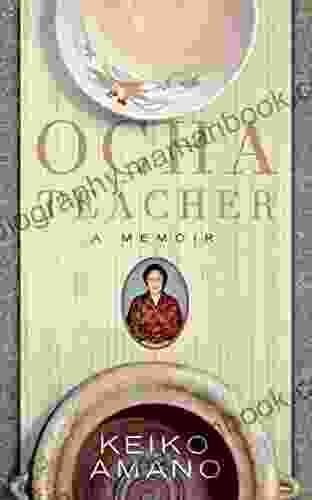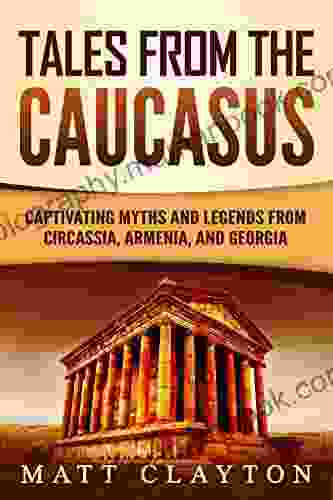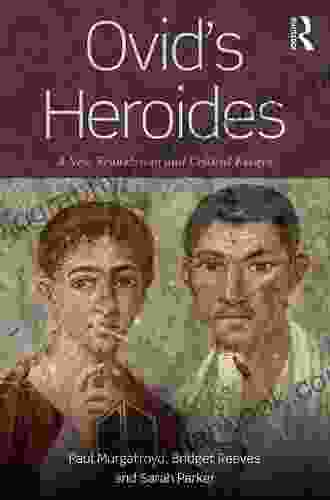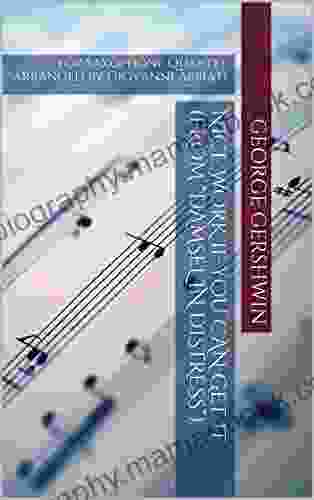Uncovering Student Ideas In Earth And Environmental Science: A Comprehensive Guide

Science education research has shown that students come to school with a wealth of prior knowledge and ideas about the world around them. These ideas, which are often based on everyday experiences and informal learning, can influence how students interpret and learn new scientific concepts. In Earth and environmental science, it is particularly important to uncover student ideas because these concepts are often complex and interconnected, and students may have difficulty understanding them if their prior knowledge is not taken into account.
This article provides a comprehensive guide to uncovering student ideas in Earth and environmental science. It explores various methods to elicit and assess students' prior knowledge, misconceptions, and alternative frameworks, as well as strategies for using this information to inform instruction and promote conceptual change.
There are a variety of methods that can be used to uncover student ideas in Earth and environmental science. These methods can be divided into two broad categories:
4.6 out of 5
| Language | : | English |
| File size | : | 27757 KB |
| Print length | : | 816 pages |
| Lending | : | Enabled |
- Eliciting methods are designed to draw out student ideas without providing any prompts or guidance.
- Assessment methods are designed to assess student ideas in a more structured way, often using standardized tests or rubrics.
Some common eliciting methods include:
- Interviews: One-on-one interviews with students can be a rich source of information about their ideas. Interviews can be conducted informally or more formally, using a structured protocol.
- Drawings and diagrams: Asking students to draw or diagram their understanding of a concept can help to reveal their ideas and misconceptions.
- Concept mapping: Concept mapping is a technique that students can use to organize their ideas about a topic. Concept maps can be used to identify student misconceptions and alternative frameworks.
- Think-pair-share: Think-pair-share is a cooperative learning strategy that can be used to elicit student ideas. Students first think about a question or topic individually, then pair up to discuss their ideas, and finally share their ideas with the whole class.
Some common assessment methods include:
- Multiple-choice tests: Multiple-choice tests can be used to assess student understanding of factual knowledge and conceptual understanding.
- Open-ended questions: Open-ended questions can be used to assess student understanding of complex concepts and their ability to apply their knowledge to new situations.
- Performance assessments: Performance assessments can be used to assess student understanding of scientific inquiry and their ability to design and conduct investigations.
Once you have uncovered student ideas, it is important to use this information to inform your instruction. There are a number of ways to do this:
- Address misconceptions directly: If you identify student misconceptions, you can address them directly in your instruction. This can be done through explicit instruction, demonstrations, or hands-on activities.
- Build on prior knowledge: Prior knowledge can be a valuable resource for learning new concepts. You can build on student prior knowledge by connecting new concepts to familiar ones and by using analogies and examples.
- Challenge alternative frameworks: Alternative frameworks can be more difficult to change than misconceptions. However, you can challenge alternative frameworks by providing students with evidence that contradicts their beliefs and by encouraging them to think critically about their ideas.
- Promote conceptual change: Conceptual change is the process of changing one's mental model of a concept. You can promote conceptual change by providing students with new experiences, helping them to make connections between new and old ideas, and encouraging them to reflect on their understanding.
Uncovering student ideas is an essential part of effective science instruction. By understanding your students' prior knowledge, misconceptions, and alternative frameworks, you can tailor your instruction to meet their needs and promote conceptual change.
4.6 out of 5
| Language | : | English |
| File size | : | 27757 KB |
| Print length | : | 816 pages |
| Lending | : | Enabled |
Do you want to contribute by writing guest posts on this blog?
Please contact us and send us a resume of previous articles that you have written.
 Top Book
Top Book Novel
Novel Fiction
Fiction Nonfiction
Nonfiction Literature
Literature Paperback
Paperback Hardcover
Hardcover E-book
E-book Audiobook
Audiobook Bestseller
Bestseller Classic
Classic Mystery
Mystery Thriller
Thriller Romance
Romance Fantasy
Fantasy Science Fiction
Science Fiction Biography
Biography Memoir
Memoir Autobiography
Autobiography Poetry
Poetry Drama
Drama Historical Fiction
Historical Fiction Self-help
Self-help Young Adult
Young Adult Childrens Books
Childrens Books Graphic Novel
Graphic Novel Anthology
Anthology Series
Series Encyclopedia
Encyclopedia Reference
Reference Guidebook
Guidebook Textbook
Textbook Workbook
Workbook Journal
Journal Diary
Diary Manuscript
Manuscript Folio
Folio Pulp Fiction
Pulp Fiction Short Stories
Short Stories Fairy Tales
Fairy Tales Fables
Fables Mythology
Mythology Philosophy
Philosophy Religion
Religion Spirituality
Spirituality Essays
Essays Critique
Critique Commentary
Commentary Glossary
Glossary Bibliography
Bibliography Index
Index Table of Contents
Table of Contents Preface
Preface Introduction
Introduction Foreword
Foreword Afterword
Afterword Appendices
Appendices Annotations
Annotations Footnotes
Footnotes Epilogue
Epilogue Prologue
Prologue Hal Hickton
Hal Hickton C J Box
C J Box Giovanni Abbiati
Giovanni Abbiati Robert Albritton
Robert Albritton Debbie Happy Cohen
Debbie Happy Cohen Christine Kersey
Christine Kersey Shane Genziuk
Shane Genziuk Edward Swick
Edward Swick Timothy Brantley
Timothy Brantley Paul B Thompson
Paul B Thompson Deb Howcroft
Deb Howcroft Lindsey Pogue
Lindsey Pogue Kathy Spencer
Kathy Spencer Andrey Kurkov
Andrey Kurkov John W Creswell
John W Creswell Max Brand
Max Brand Don Rich
Don Rich Sarah M Broom
Sarah M Broom Andy Evans
Andy Evans John Simmons
John Simmons
Light bulbAdvertise smarter! Our strategic ad space ensures maximum exposure. Reserve your spot today!

 Simon MitchellOld Guys Murder Mystery: A Journey into the World of Elderly Detectives and...
Simon MitchellOld Guys Murder Mystery: A Journey into the World of Elderly Detectives and...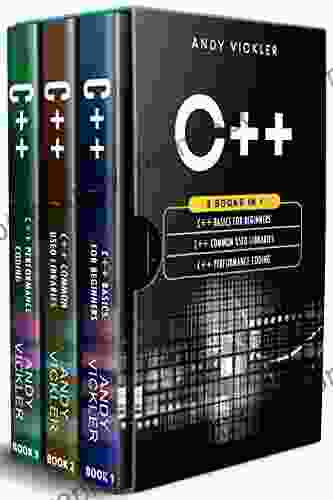
 Clarence MitchellBasics for Beginners: Understanding Common Performance-Boosting Libraries
Clarence MitchellBasics for Beginners: Understanding Common Performance-Boosting Libraries Edison MitchellFollow ·17.3k
Edison MitchellFollow ·17.3k Ray BlairFollow ·8.1k
Ray BlairFollow ·8.1k Aaron BrooksFollow ·10.8k
Aaron BrooksFollow ·10.8k Tyler NelsonFollow ·6.2k
Tyler NelsonFollow ·6.2k José SaramagoFollow ·13.1k
José SaramagoFollow ·13.1k Devin CoxFollow ·13.1k
Devin CoxFollow ·13.1k Thomas HardyFollow ·19.1k
Thomas HardyFollow ·19.1k William GoldingFollow ·4.9k
William GoldingFollow ·4.9k
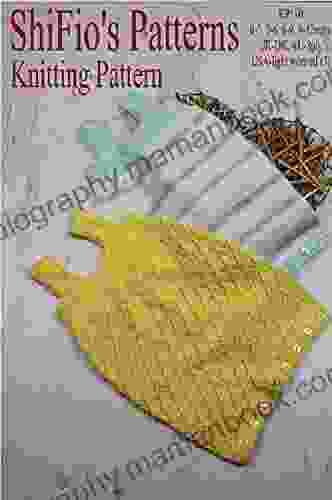
 Barry Bryant
Barry BryantKnitting Pattern Kp190 Baby Sleeping Bags Sizes 3mths...
This easy-to-follow...
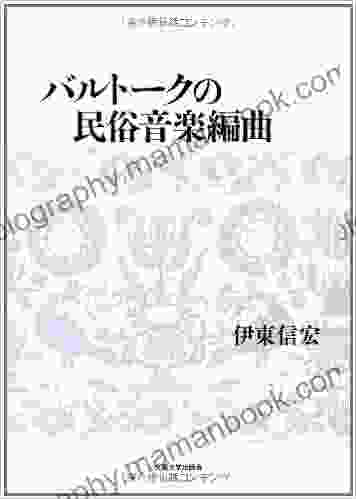
 Rudyard Kipling
Rudyard KiplingFolk Music Arrangements of Bartók: A Musical Tapestry of...
Béla Bartók, the renowned...
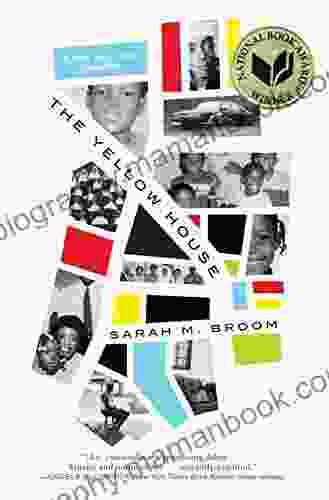
 Garrett Bell
Garrett BellThe Yellow House Memoir: A Literary Masterpiece that...
A Journey of Resilience,...
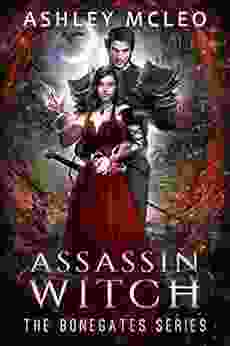
 George Martin
George MartinAssassin Witch Dark Faerie: The Bonegates
In the shadowy...
4.6 out of 5
| Language | : | English |
| File size | : | 27757 KB |
| Print length | : | 816 pages |
| Lending | : | Enabled |


